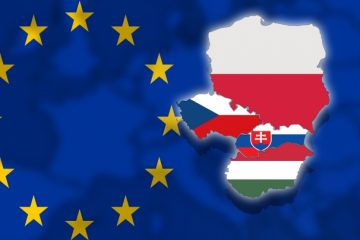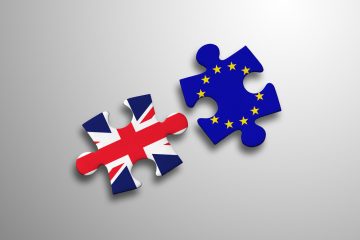
The Visegrad Group and Brexit: Ambitions Too High?
The Visegrád Group (VG; also referred to as the Visegrád Four) is a multilateral platform composed of four Central and Eastern European states (the Czech Republic, Hungary, Poland and Slovakia) which was established in 1991 to enhance mutual cooperation and coordination and which has recently become synonymous with the word “rebellion” in Brussels. Ambitions unleashed Many commentators and researchers have argued that Brexit would increase the potential for this sub-regional grouping to punch above its weight, better secure its interests and contribute more prominently to shaping the future of the EU. Indeed, the group itself has clearly tried to include Brexit in its portfolio of sub-regional cooperation. There has been a clearly articulated ambition within VG political circles to define …

Czech Brexit Policy: Low Level of Politicization and High Degree of Compliance
There are at least four reasons why one might expect Brexit to be a high-profile, politicized issue in Czech politics. First of all, there is increasing evidence that the European Union (EU) crises, of which Brexit is currently probably the most acute one, have led to increased politicization of EU politics in many member states. Secondly, the Czech EU debate is generally politicized and characterized by a predominantly critical tone. Indeed, the country has long been one of the most Eurosceptic EU member states, with a strong tradition of party-based Euroscepticism and a low level of public trust in the EU (according to the latest Eurobarometer survey, it has the third lowest level of public trust in the EU after …

Britain’s Brexit Bargaining: Insights from Game Theory
As we enter a key Brexit endgame week, a few thoughts – informed by game theory – come to mind on the ironies of the British negotiation position and strategy thus far. The basic claim of bargaining theory is that you need a strong ‘reversion point,’ that you can go back to if bargaining fails. Once Article 50 was activated, that was necessarily ‘No Deal’ for the UK. But No Deal is likely self-damaging and certainly divisive. So, it did not and cannot represent a credible reversion point. Without this clear reversion point, one option is to pretend you want something self-damaging – the ‘madman’ approach. For this tactic to work, though, you need to be believed to be ‘mad’ …

The young(-ish) have spoken. What now?
When Teresa May announced her snap election last April, she not only ruined my Roman holiday, but also made me cringe about having written a blog in the immediate aftermath of the Brexit referendum in which I had encouraged just that, namely: “Go with Dignity – Call a Snap Election!” Why? By then I had accepted the prevailing wisdom that the Conservatives would win a landslide victory, providing them with a three-figure majority in the Commons. This would have given her the popular mandate to push through Brexit in the ‘hardest’ possible form, thus nullifying any chance for a second ‘in-out’ referendum on the outcome of the Article 50 negotiations, which I had by then advocated in “The Will of …

Complex Negotiations are Dynamic and Unpredictable: An analysis of Sturgeon’s and May’s approach to Brexit
In the week of 13 March, two momentous events took place. Parliament passed the bill giving the government authority to notify the European Council that the United Kingdom intends to withdraw from the European Union. And First Minister Nicola Sturgeon announced that her government will introduce legislation for a second independence referendum for Scotland. The first occurred despite the House of Lords’ insistence on a prior guarantee of the status of EU citizens or of an up-or-down vote on the final deal (or no deal); the second was a surprise move, seemingly calculated to pre-empt a positive news cycle on the day the bill was approved. These two leaders’ approaches to Brexit so far show the difference between imposing order and control in an …

The case for uk parliamentary oversight of negotiation of the brexit agreements
On 6 September 2016 Professor Derrick Wyatt QC presented evidence to the House of Lords EU Select Committee on Parliamentary Scrutiny of the Brexit negotiations. In this article, Professor Wyatt summarises his contribution. A video of the oral evidence session is included below the article. When the uk triggers article 50, formal negotiations on a withdrawal agreement and a future trade agreement will begin When I last wrote for this blog about Brexit and the Article 50 process, shortly after giving evidence to the House of Lords EU Select Committee, I was writing about something that might happen. Now, more than two months after the referendum decision to leave the EU, I am writing about something that will happen. Once Article 50 …









